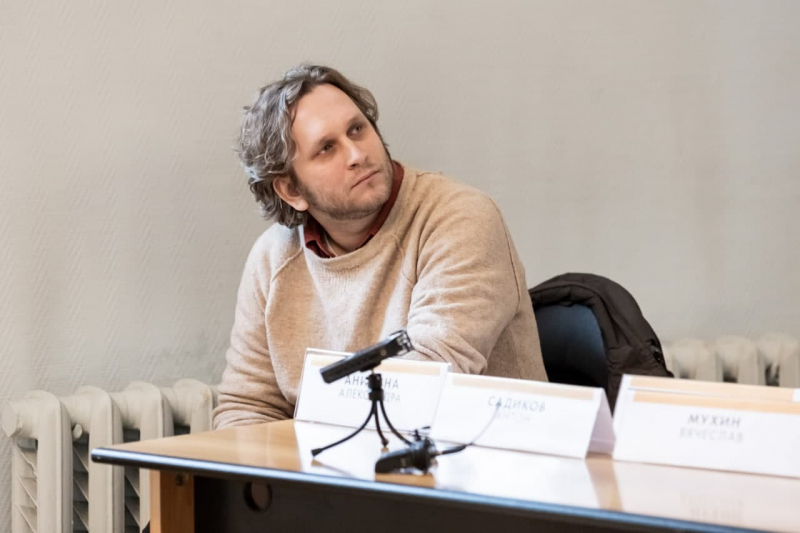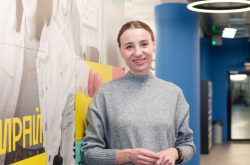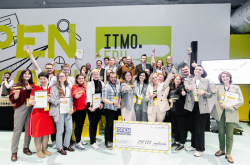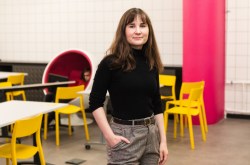When did you become a lecturer?
About 10 years ago. I received a degree in sociology at Udmurt State University, stayed there as a PhD student, and taught a couple of courses. Then I entered a Master’s program at the European University at St. Petersburg and didn’t teach for two years. After graduation, I started my second PhD degree at ITMO University and went back to teaching.
In my first years of teaching, I sort of studied philosophy under the disguise of sociological research. But such an approach couldn’t last and I decided that it’s better to explore the field I’m actually interested in – that’s why I applied to the European University.
You’re undergoing an internship in Helsinki. How did you enter it?
In 2018, I won an internship in Helsinki that would allow me to complete my PhD thesis but due to personal circumstances and the pandemic, I only used this opportunity in 2021.
I’ve completed my PhD studies – I just need to finalize my thesis. I’m staying at a hotel, attending local seminars in Zoom, and sometimes meeting my colleagues in person. Plus, I’m teaching courses for ITMO students.
What is your thesis topic?
In a nutshell, it’s about modern dialectics, about the connection between ontology – the way we understand the being – and real life.
The title of my thesis and my research interests intersect. I write articles in the field too but in the near future, I’ll publish a lot of papers related to theology and the philosophical approach to Christianity. It’s related to dialectics too, but goes beyond my usual field of research.
Is theology a popular research topic in modern philosophy?
In the 21st century, theology not only didn’t cease to exist but on the contrary, keeps developing fast. For example, there are lively discussions in Orthodox Christianity: different schools argue and try to figure out who is right. A philosopher’s task is to study this phenomenon without becoming a religious or theological thinker and staying an objective observer.
Is it harder to publish a paper in philosophy than in STEM?
I think it’s equally hard to publish a paper in natural sciences and humanities. But when it comes to Russian humanities researchers, there are more problems in communication with our Western colleagues.
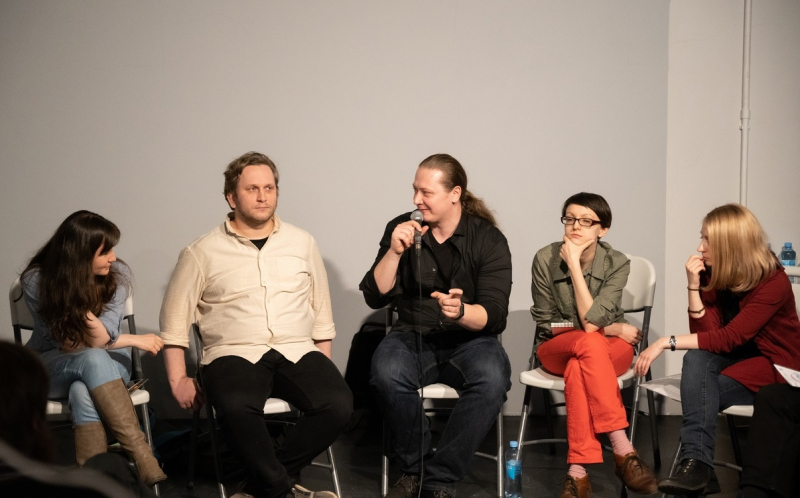
Anton Syutkin at a conference at European University.
Firstly, you have to get over the language barrier to publish in English. Secondly, there are fewer journals in philosophy and most of them are related to British and American analytical philosophy, whereas Russian philosophy is more in the European tradition. At least I consider myself a part of it. And European journals are even harder to reach.
Is there a big difference between teaching Bachelor’s and Master’s students?
For our Master’s students, we have a course in political philosophy. It includes discussions of relevant political questions and worldviews, whereas Bachelor’s students study the basics.
However, my colleagues and I are thinking about making a simplified course in this field for Bachelor’s students as well, to let them learn about not only classical philosophy, but also contemporary concepts. As of now, there are only eight lectures and eight seminars – they allow us to cover only the most significant philosophers.
What made you come up with this idea?
As you can imagine, it’s more fun to teach courses related to your research interests. Plus, many students wish to study philosophy more thoroughly – some would like to attend a course in artificial intelligence and conscience or modern questions of democratic theory, while others – on ethics and religion or aesthetics and modern art. Both students and lecturers are very diverse and it would be great to give them a choice of what to study and teach. This means that the course can end up either being super brief or too long – but that’s already a technical question.
So you’re suggesting something like an individual learning track for philosophical subjects?
Yes, but at the same time, it’s important to not leave the classic authors out. Without them, you can’t study anything more specific.
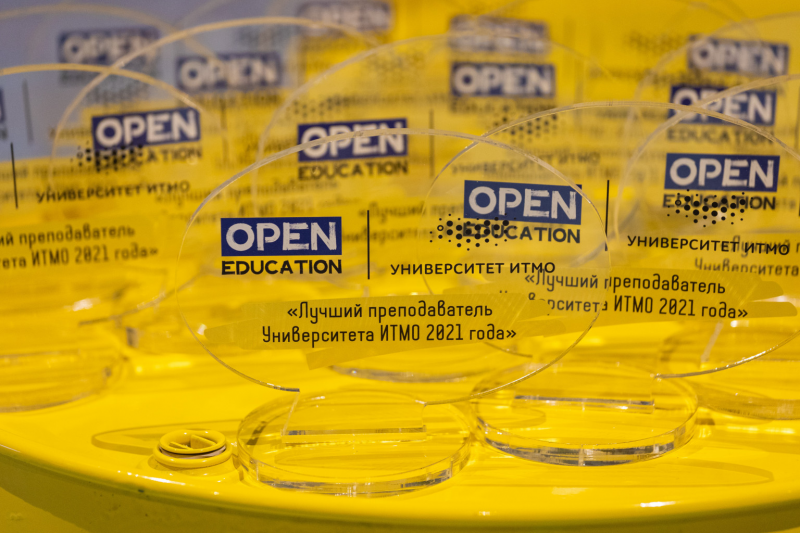
ITMO.EduStars Best ITMO lecturer 2021 prizes. Credit: ITMO.NEWS
Student reviews are taken into consideration when experts choose ITMO.EduStars winners. What do you think they like about you?
I can’t be sure because I don’t quite understand how this process works. Every year you have different groups of students and the mode of your communication with them can’t be predicted: sometimes, no matter how hard you try, they don’t want to participate in classes and there is just no rapport. At other times, it happens naturally, without much effort.
We have Telegram chats for communication with students. They’re often filled with memes and discussions and thanks to this, you, as a lecturer, can see what kind of effect your classes have. But this doesn’t happen with all students – some prefer to only communicate about homework and other studies-related questions.
Have students changed in the last couple of years?
Yes, drastically. For example, there are some students who are already eligible to enter a Master’s program in philosophy. They quote authors I haven’t even read. It’s fascinating that students of technical specializations are not only interested in philosophy but have also read both classic and modern authors at school. This motivates me to keep developing as a teacher.
I’d say there’s now a distinct differentiation: in every group, there can be several active students and one of them might be capable of giving a lecture themselves. This poses a question: how do we make classes interesting for both advanced students and those who aren’t into it yet? Perhaps, the new system we suggest will be able to overcome this challenge.
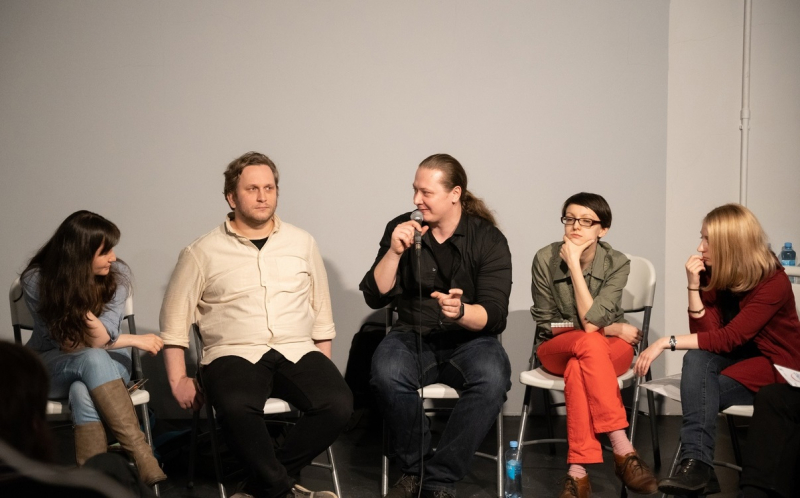
Anton Syutkin at the "Let's Rot Together" conference.
Is there a way for students who are good at philosophy to develop their expertise at ITMO?
As of now, we don’t have much to offer. That’s why we came up with the idea to remake our course. Each year, we have students who ask “Is there more?” at the end of the semester. They want to keep studying, but there are no available options.
At ITMO, we have a course in philosophy for first-year Bachelor’s students, and then there’s nothing like that until Master’s studies. There’s also the Art & Science program and our colleagues discuss similar topics there. They offer minors and short courses for Bachelor’s students, but they’re more about modern art and reflection on science, not philosophy itself. So for us, this project is a chance to take a step forward and come up with a way to help these students stay at ITMO and develop in their field of interest.
Are you planning to continue teaching after your PhD thesis defense?
Philosophers and other humanities researchers have a hard time distinguishing their research from teaching. There’s a need to share your ideas with a community of fellow researchers and students who can provide feedback. So I’m planning to continue teaching but I’d like to switch to more specialized courses. That’s why we’re working on a new curriculum in philosophy at ITMO.
Is it hard to teach and do research at the same time?
It is. The main problem you face as a teacher and researcher is a lack of time. On one hand, you’re working, and to continue doing so, you need to publish papers. On the other hand, you’re writing papers, and for that, you need to hold lectures and discuss your ideas with colleagues and students. Plus, you have a family and a personal life, so inevitably, you have to be a jack of all trades and constantly prioritize one thing over another.
Are you going to take part in ITMO.EduLeaders, another category of ITMO Edu Awards?
I think so. But I’m also planning to finish my research paper and a couple of academic projects. Once I’m done with my thesis, I’ll start working on my project for ITMO.EduLeaders.
